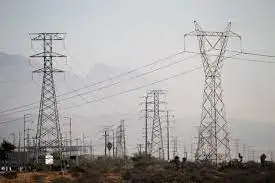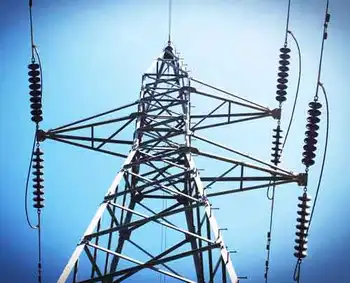Virginia Commission Approves Power Plant
- A proposed Pittsylvania County power plant has received the State Corporation Commission's approval, but the plant's potential to pollute the air still worries a commission majority.
Despite granting a certificate for White Oak Power Co. to build and operate a 680 megawatt power plant, two of the SCC's three judges say state environmental review of the plant's impact on air-quality was lacking. The third judge, who also approved the plant, said the environmental concerns are none of the commission's business.
Last year, the General Assembly passed a law that requires the SCC to defer to the Department of Environmental Quality on environmental matters related to the siting of power plants. The law was passed at the urging or the power industry, which argued that commission review of the environmental impacts of power plants duplicated that of DEQ.
A spokesman for the environmental agency said the agency is unable to do what the SCC is asking for because DEQ lacks the technical ability and legal authority.
White Oak Power is a subsidiary of the FPL Group of Juno Beach, Fla., parent of Florida Power & Light. The company plans to build four natural-gas fired generating units along state Route 718 about 10 miles north of Danville. The generating units, which also could burn low-sulfur oil, would operate during times of peak electricity demand, generally the coldest and hottest days of the year.
In granting the certificate, the SCC ordered that White Oak obtain the required state environmental permits and comply with eight recommendations that the Department of Environmental Quality has made, including taking precautions to protect wetlands, streams, wildlife and historic resources.
SCC judges Hullihen Moore and Clinton Miller wrote, however, that they might have required more study on the environmental impact of the proposed plant if state law allowed them to.
Moore and Miller noted that their "mounting alarm" extends to the impact on air quality of seven other power plants the SCC has approved since April 2002.
The judges wrote that the environmental studies have not been thorough, especially with respect to dust and ozone pollution.
No information was provided on the eight plants' with regard to a new federal standard for background levels of ozone, a pollutant that can be dangerous to humans and plants, the judges noted. They said they do not know whether ozone levels at the locations of the new plants already exceeds the standard.
Virginians are entitled to the environmental information, the judges wrote.
Judge Theodore V. Morrison Jr. wrote that his fellow judges correctly recognized that the SCC has no jurisdiction over the environmental issues for which the DEQ is responsible. His colleagues' environmental concerns "are none of our jurisdictional business," he wrote.
Morrison said Moore and Miller's concerns suggest a serious failure on the part of a state agency to protect the public health.
While his fellow judges' fears may be justified, there are better ways to communicate with those who make public policy, he wrote. Raising the concerns in an SCC order "smacks of unseemly judicial activism," Morrison wrote.
DEQ spokesman William Hayden said his agency recognizes the two judges' concerns but cannot evaluate pollution from individual power plants as the SCC suggested.
However, a regional study of 16 proposed power plants in Virginia indicates that the increase in ozone pollution would be negligible, he said. Common sense indicates that if 16 would be negligible, one would not be a concern, Hayden said.
New rules taking effect next year on nitrogen-oxide emissions from older power plants should make significant improvements to air quality, he said.
Related News

Brazil tax strategy to bring down fuel, electricity prices seen having limited effects
BRASILIA - Brazil’s congress approved a bill that limits the ICMS tax rate that state governments can charge on fuels, natural gas, electricity, communications, and public transportation.
Local lawyers told BNamericas that the measure may reduce fuel and power prices in the short term but it is unlikely to produce any major effects in the medium and long term.
In most states the ceiling was set at 17% or 18% and the federal government will pay compensation to the states for lost tax revenue until December 31, via reduced payments on debts that states owe the federal government.
The bill will become law…




